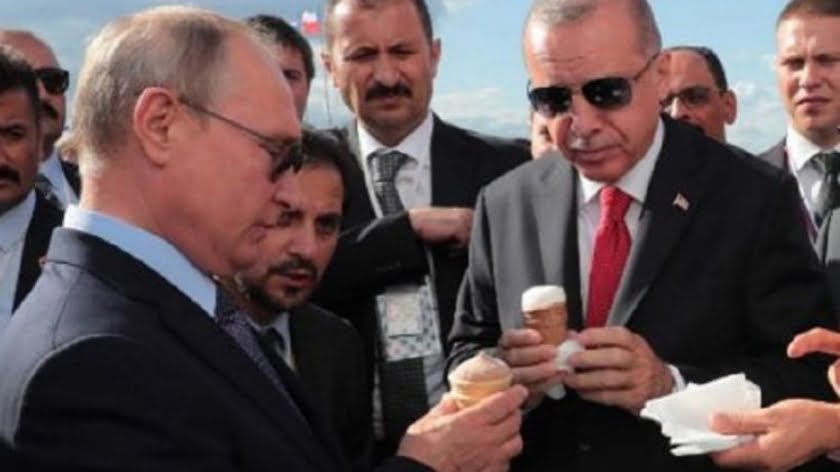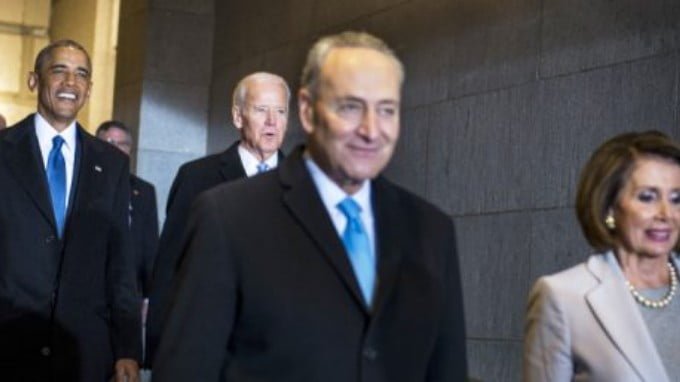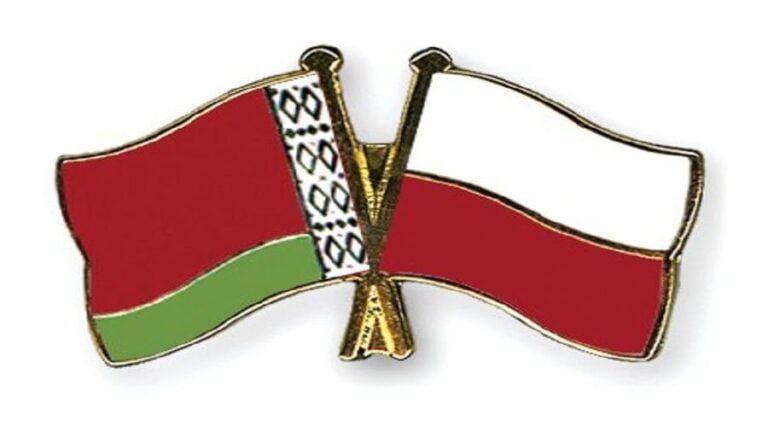Russia’s Balancing Act Will Be Put to the Test During the Putin-Erdogan Meeting
Russia will have to fine-tune its regional “balancing” act during President Erdogan’s upcoming meeting with President Putin, and the outcome will likely be tilted in Turkey’s favor instead of Syria’s.
***
The 120-hour “pause” in fighting that Turkey and the US agreed to last week expires on Tuesday, the same day that President Erdogan is slated to meet his Russian counterpart in Sochi to discuss the latest developments in Northeastern Syria since the onset of “Operation Peace Spring“. Russia’s “balancing” act will be put to the test since Moscow is finding it increasingly difficult to “harmonize” contradictory Turkish and Syrian interests, meaning that the outcome will likely be tilted in favor of one or the other, most likely Ankara despite Damascus’ opposition.
It’s “politically incorrect” in the Alt-Media Community to talk about, but Russia’s military mandate in Syria only covers anti-terrorist responsibilities and has nothing at all to do with protecting the internationally recognized borders of the host state, so it’s unrealistic to expect that Moscow will side with Damascus by urging Turkey to withdraw. Furthermore, Russian Foreign Minister Lavrov called Turkey’s planned interest in creating a “safety zone” on its southern neighbor’s territory “absolutely legal” at the beginning of September, and Chairman of the Russian Federation Council’s Foreign Affairs Committee Kosachev even praised the recent “pause” in fighting while simultaneously “suggesting” that “the Kurds and Damascus” do the same thing as the US by “recognizing Ankara’s right establish such a zone” if they want to “avoid further losses”.
Russia’s officially articulated positions towards this issue are in spite of President Assad calling for the withdrawal of Turkish forces and his advisor Shabaan describing the “security zone” as a “zone of occupation”. The question thus becomes one of why Russia and Syria have such diverging stances towards the situation in Northeastern Syria, and the answer is that they simply have different interests at stake. Russia’s made enormous strategic gains with Turkey over the past few years, especially concerning Turkish Stream and the S-400s, and it doesn’t want to lose its new partner by openly opposing its security interests, while Syria understandably wants to fulfill President Assad’s promise to liberate “every square inch” of the country in line with international law.
This divergence explains why Russia has never forcefully condemned Turkey’s two previous conventional military interventions in Syria while Damascus consistently criticized them, but the dichotomy between these two war-time allies doesn’t mean that they’re “enemies”. Rather, it’s simply the outgrowth of their very different post-Daesh visions for the country, with Russia as a Great Power envisaging grand deal-making between all interested stakeholders in the Arab Republic while Syria as the host state naturally prefers not to sacrifice any of its sovereignty no matter what the bigger picture may be. As a result, it’s now proven beyond any doubt that Russia and Syria do not coordinate each and every action in the country with one another unlike was previously assumed because otherwise they wouldn’t have such drastically different positions on this issue.
Russia will likely continue “fine-tuning” its “balancing” act to make it more attuned with Turkish interests after one of President Erdogan’s aides declared over the weekend that “if the Syrian regime [government troops] wants to enter Manbij, Ayn al-Arab [Kobani] and Qamishli to provide protection for the Kurdish People’s Protection Units [YPG], that will be viewed by Turkey as the declaration of war and it [Damascus] will face a relevant response.” By drawing this red line in the sand, Turkey made it clear that it will not accept the reported alliance between the Syrian Arab Army (SAA) and part of the Kurdish-led “Syrian Democratic Forces” (SDF) because it fears that the latter will hide behind the former, and with both of them being Russia’s partners now, this could speculatively result in the Russian Aerospace Forces protecting the group that Ankara considers to be terrorists if they embed themselves with the SAA in order to plan or carry out attacks against the Turkish military, be it its forces in Syria or even in their home country just across the border.
What this means is that Damascus’ “grand deal” of partnering with the militant Kurds out of “shared anti-Turkish convenience” could fall apart since its sustainability depends upon the armed fighters feeling as though their military-political interests have been met and that they’re not surrendering any more of them than they have to, but they will indeed have to give up some of their gains if they’re to avoid triggering Turkey into continuing its campaign and even possibly attacking the SAA for supposedly “sheltering” them. The SDF wants to use the SAA as a tripwire for triggering Russian support for their cause, a scheme that both Ankara and Moscow are obviously aware of and why President Putin might comply with his Turkish partner’s request and thus do everything in his power to “convince” Syria to distance itself from the SDF along the border regions that they just recently liberated per the “grand deal”, though this might not go down well with either Damascus or the Kurds.
That’s why Russia’s “balancing” act will be put to the test since the political fallout of undertaking this pragmatic course of action could worsen relations between Moscow and its two on-the-ground partners in the Arab Republic, though frankly speaking, there’s little that Damascus could realistically do other than indirectly protest through media statements packed with innuendo about how upset they are. The Kurds, meanwhile, are the real wild card since they’ve already proven themselves to be beyond anyone’s control, so it can’t be discounted that they’ll stage a provocation in order to get Turkey to respond against the SAA and thus set the aforementioned chain of events into motion. It’s therefore incumbent on Russia to assuage Turkey’s concerns about this issue by taking credible steps to convince it that its “absolutely legal” interests in Northeastern Syria will be respected through the SAA taking tangible action to remove, or at least disarm, the Kurdish fighters now under their protection in the recently liberated borderland areas, which is what the upcoming summit will most likely be about and could even conclude with the creation of another so-called “de-escalation zone” there.
By Andrew Korybko
Source: One World






